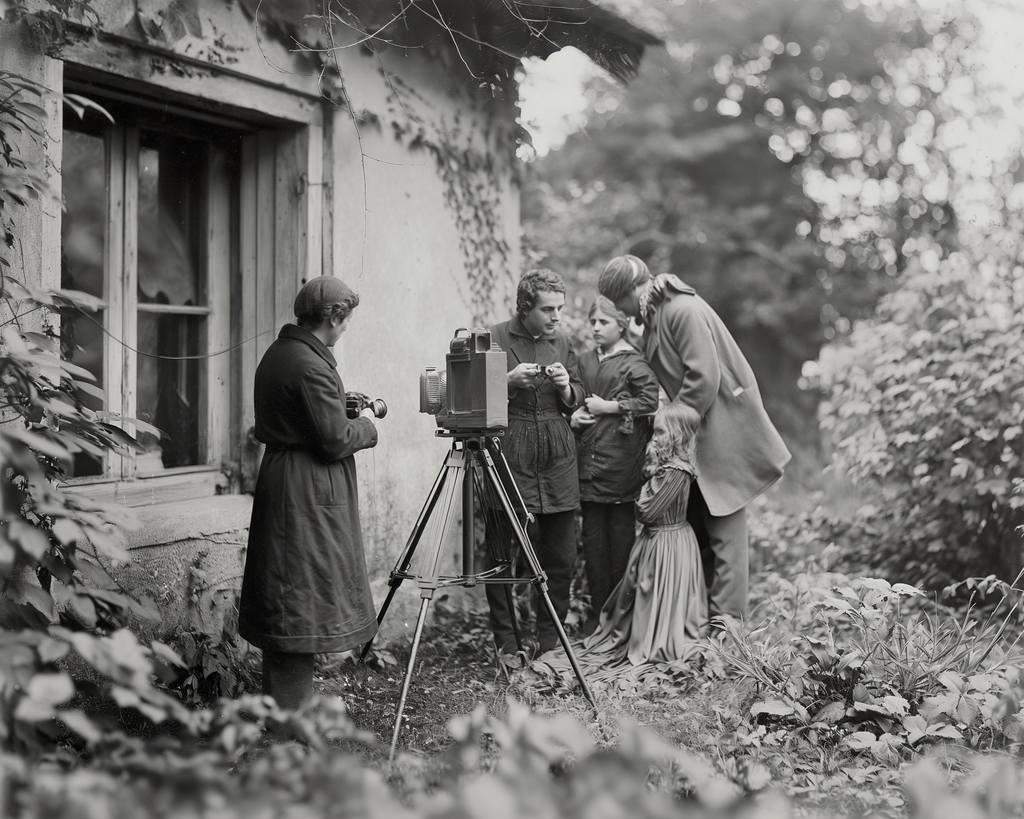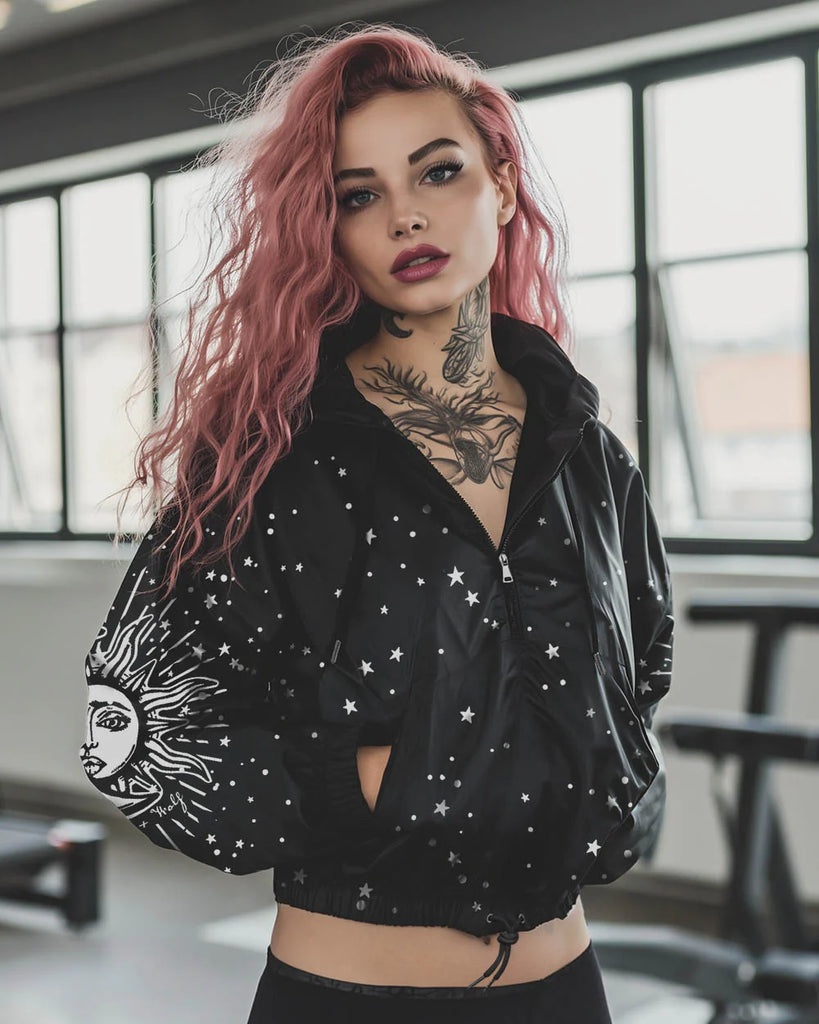AI Photography
In previous posts we explained our long history of early adoption of new technologies and why we think that instead of job losses we should be discussing inevitable job transformation through new technologies.
Today we’ll explain how we see photography generated by artificial intelligence.
On a side note, we kindly ask everyone to be patient if they want answers from us. There are a lot of comments out there demanding that we answer all questions, work with every photographer and model, model all our products on ourselves, respond to every single demand, all right here and now. Apologies but everything takes time and we are a small team.
We try to read all comments (if the dreadful Meta interfaces allow us), enjoy reading the articulate ones and understand the rude and frustrated ones. We will be replying by writing one post per week on Friday.
Now let’s talk about Artificial Intelligence Photography.
Shortest Historical Perspective

Painting was the only way to capture reality for millennia. Photography was invented in the early 1800s and by the end of the same century the Kodak film camera made photography accessible to the masses. Kodak invented the first digital camera in 1975 but did not see the potential and did not like the disruption to its film business model so eventually Kodak went bankrupt. Digital photography brought the cost of photography close to 0 and photography use exploded in a million ways. Instagram was born through the abundance of digital photos, among countless other new businesses. AI smart filters have been out for almost a decade and transformed photography again by reducing the need for a professional photographer or editor. The next step in evolution is AI photography and it’s maturing fast.
AI is a Superior Tool

AI image generation is already many times better than a camera in many ways and it’s getting better by x10 every a few months. There’s no hiding from this: AI is a superior tool for the job, from the technical standpoint. Within a year or two, AI image generation will be superior to any camera ever made or will be made. Why would we still use a camera?
There are and will be many reasons to use a camera, in the same way that there are many reasons to paint with a brush or wear hand made shoes made by a shoemaker. How many people reading these words are wearing hand made shoes? Our bet is somewhere in the range of “not many to none”. How many shoemakers are currently working in industrialised countries? Can a shoemaker even make your latest Nikes? Certainly can’t, for reasons around the superior engineering required to the injection moulded plastics used in production. Shoe factories are a superior tool for the job and society has settled into this understanding.
Photographers have reasons to worry about going the way of shoemakers. There will be a drop in demand for “camera photography”, at least in the near term, simply because there is a new better tool for the job and it is unknown how dynamics will evolve. That doesn’t mean that there will be a drop in demand for photography in general, quite the opposite. Abundance tends to create more demand, not less. When it becomes cheaper and more accessible to have high quality photographs, people will want more photographs and find new ways to use them, in ways we cannot predict. Just compare with the transition from film photography to digital photography. The amount of photos taken and used daily exploded after they became 0 cost with digitisation, giving birth to entire new industries. We predict that the same explosion will happen with the transition from digital photography to AI generated photography.
Photography in the Future
This transition does not mark the end for photographers. Direct capture of reality will still need a camera and someone to hold it. AI photography is a recreation of reality, much like a painting. Even when AI will be able to create 100% accurate depictions of reality (very, very soon) there will still be a need to directly capture an image of reality.
Regardless of a need to capture reality, a photographer’s skills can transfer to the new medium in the way that skills in film photography can transfer to digital photography, or skill in oil painting can transfer to digital art. Knowledge of lenses and lighting, composition, photo editing, not to mention creativity, understanding of design and aesthetics and ultimately vision, all still apply to AI generated photography. Some photographers will transition to the new medium, others will choose to only use a camera, some photographers still use film cameras. Some painters even create hyper realistic paintings that are indistinguishable from a photograph. There’s nothing wrong with either approach, nothing to judge, these are all slightly different tools for slightly different results.
We would like to caution photographers to not subscribe to the storyline that somehow society will reject using AI, that consumers will just boycott businesses until they abandon AI. AI is such a superior tool that it will permeate every aspect of our lives in the coming years, including photography. Photographers would do better to understand and explore the transformation of photography as it happens and find their own niche in the new world. Don’t ignore AI photography like Kodak ignored the digital camera.
The Bottom Line
In Rogue + Wolf, we will generally choose the superior technical tool for our creative process, this is our personal preference and we’ve always done this.
Of course we can work with photographers and models and we will. We adore how vibrant The Coven is and we love sending people free stuff and see how you wear them on social. We have been in a design sprint for a few months now and did not focus on other marketing much, excited to be exploring the new AI tools.
Use AI if you want, or don’t. Buy products that use AI in the creative process if they spark joy in your life, or don’t. But please don’t try to force others to work with photographers, models, painters, film developers, or shoemakers. Allow everyone to work how they want and let culture flourish in 8 billion different ways.
With love and optimism,
Michael and Eloise
Founders and Directors of Rogue + Wolf
P.S. We know there are plenty more ethical considerations out there around using AI, e.g. how AI is trained. We also focused on the photographer’s job and not the model’s, as these are very different. As always, patience until next week you guys, this post is long enough as it is. 😄 We’d like to talk about all this and more, all in good time.






oh lol it got worse. AI cannot replace photography because it can never see the real world, it can only have a mashup of photographs of the real world. Even the camera doesn’t really show the world quite how our own eyes are able to see. Even for people making very realistic 3d models with fabric physics, they aren’t being used as a reference for anything outside of videogames, film, or simple garments like t-shirts. Machine learning created images (process of elimination after having related objects thrown at it grown off of human workers like you and me using those captcha puzzles) do not have volumetric space. The models they will generate will always tend towards thin and as it has photoshopped model cover vibes, there is no way for it to be a rational representation of the real thing. Mockups of different prints on the same model are very common, but those still don’t show exactly how the print will fall in real life, just close enough that it’s ok. The entire fit of the garment however needs to be displayed in real space. This is just the airbrushed, polished, “higher tech,” and sparkly version of Wish ads.
This is such a powerfully awful take. One of the reasons people are so frustrated with your outlook on AI is that it doesn’t show us how the product looks on a real person, and no amount of trying to convince us that AI is the superior tool for the job will ever produce a half-decent argument for this. You’ve just stitched an image together using things you created using AI and Photoshop that doesn’t show your consumers – who you continue to loudly speak over, by the way – and the end result is that, ultimately, the people who you’re selling to don’t actually have an idea of how the item looks. How am I supposed to be able to estimate how the item will look on me when you’ve Frankensteined together an image using AI because, in your humble opinion, it’s a better representation of the product than taking an actual photograph of a human wearing the item?
This is such an absurd thing to double down on, and here you are, tripling down on it. No-one’s telling you not to use AI, which you seem hellbent on doing regardless, they’re saying that you’re implementing it in an unethical way that comes at the behest of your customers.
I don’t think you truly understand the devastation that AI has wrought upon creatives. You, who sell products and suckle at the teat of capitalism. You, who profit off of artists and look for any buck to save, no matter the cost to others. When your business fails and you struggle to even sell it to a knockoff company, will you still cry “haters” and insist that we didn’t understand? Please, speak to real artists, photographers, and models. Not AI generation salesmen.
Another deeply embarrassing post that ultimately says nothing besides “But we think Artificial Intelligence is a really cool concept and have no grasp of the concepts of predictive or generative ai, and can’t comprehend that our actions have consequences on our community”. I don’t know how you live with yourselves.
Yay another word salad that can be summed up with “fuck all small creators except us, we’re special”
Leave a comment